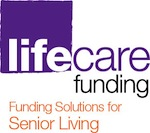This blog post will focus on one of the most common forms used in VA improved pension (with aid and attendance) claims. As an introduction, I will start with some general comments on the use of VA forms. Like most well-established bureaucracies, the Department of Veterans Affairs is partial to its own forms. There are very few scenarios involving VA pension claims that do not call for at least one form. Using the wrong form or the wrong version of a form, or completing the right form incorrectly, can have serious unintended consequences to your claim. It could be delayed or outright denied.
 Because it is so important that you use the most current version of a form, the software developed by Lawyers with Purpose to complete claim forms is regularly updated to incorporate form revisions. Otherwise, to ensure that you are using the most up-to-date versions, we recommended that you go to the source: namely, the VA website at http://www.va.gov/vaforms/, which has 517 forms in its database. The goal of this post will be threefold: to define the purpose of the form; to discuss how to complete it, section by section; and to recommend what to file with the form.
Because it is so important that you use the most current version of a form, the software developed by Lawyers with Purpose to complete claim forms is regularly updated to incorporate form revisions. Otherwise, to ensure that you are using the most up-to-date versions, we recommended that you go to the source: namely, the VA website at http://www.va.gov/vaforms/, which has 517 forms in its database. The goal of this post will be threefold: to define the purpose of the form; to discuss how to complete it, section by section; and to recommend what to file with the form.
The VA form 21-527EZ Application for Pension, which is used by a veteran to apply for non-service-connected pension benefits. The form is only for veterans filing a claim. If the claimant is a surviving spouse, then you would use the counterpart VA form 21-534EZ. When you download the 21-527EZ from the VA website, the document has eight pages – four pages of instructions and four pages of form. The first two pages of the instructions explain what it is and how to file a Fully Developed Claim (FDC), which is a relatively quicker claim process in comparison to the Standard Claim Process. Page 3 of the instructions discusses what evidence you should supply to support your claim, depending on the level of benefits being sought: Base Pension, Housebound, or Aid & Attendance. The last page of instructions relates to benefits for a helpless child of a veteran, validity of marriages, and the effective date.
There are 13 sections to VA form 21-527EZ, numbered with Roman numerals; 10 of these are labeled “Must Complete,” while the other three sections are to be completed only if applicable. Sections I and II are for the Veteran’s Personal and Service Information, respectively. Most of the fields here are self-explanatory. If the veteran previously filed a claim with the VA or you already filed an informal claim/intent to file a claim, you may have the VA file number to put in field 6; otherwise put “Unknown.” The question in field 9, “What disability(ies) prevents you from working?”, can be answered by putting “over 65.” Section III is for the Veteran’s Work History, which, unless they are currently working, you will complete by putting “Retired” in the first block of column 17A. The next three sections relate to the veteran’s family; specifically, marital history (IV and V) and dependent children (VI). You are required to complete Section IV regarding marital status. However, you should only complete Sections V and VI if the veteran is currently married or has dependent children, respectively, otherwise they can be crossed off as non-applicable.
The next three sections (VII to IX) relate to finances. The associated section names are a little misleading. For example, Section VII: Income Verification – Net Worth is for reporting net worth and not income, as the name may lead you to believe. All countable assets of the veteran and any dependents should be listed here as of the effective date. Sections VIII and IX are both for reporting income of the veteran and any dependents as of the effective date, the difference being that Section VIII: Income Verification – Monthly Income should be used to report income that is received in fixed, monthly payments, such as Social Security or retirement pension, while Section IX: Expected Income is for reporting annual amounts of income that are not received in fixed, monthly payments. The effective date is the date that the informal claim or intent to file a claim was filed, or if not filed, the date the formal claim was submitted. Every source of income received by the veteran and any dependent should appear in either section VIII or IX, but never in both.
Section X is for reporting unreimbursed medical, legal, or other expenses. However, since the VA has a more extensive form to report medical expense, VA form 21P-8416 Medical Expense Report, we recommend you use that form instead and only cross-reference VA form 21P-8416 in Section X. The last page and the three last sections of form 21-527EZ consist of Direct Deposit Information (XI), Claim Certification and Signature (XII), and Witnesses to Signature (XIII). You must complete the first two of these sections, and specifically, the veteran must sign Section XII. The VA does not recognize Powers of Attorney. The final section is only applicable if the veteran signed the previous section with an “X.” In that case, two witnesses must also sign to document the identity of the signer.
When you file VA form 21-527EZ, you must also file verification documents. Simply put, what you file should support the data you entered in the 13 sections of the form. Whenever possible, provide photo identification, birth certificate, and military discharge paperwork. Moreover, and just as important, include marriage certificates and any divorce decrees or death certificates to document the proper dissolution of prior marriages. Their omission will almost certainly delay a claim when the VA has to request this information, wait to receive it, and then continue processing the claim. It is also recommended to provide financial statements to support the net worth and income as of the effective date reported in sections VII to IX.
In summary, VA Form 21-527EZ is the primary application form for a veteran seeking non-service-connected pension benefits. It is best practice to complete all 10 mandatory sections of this form and any of the remaining three sections, if applicable, and to provide all documents that support what is declared on the form. Keep up to date with changes to VA forms by updating your LWP-CCS software whenever new releases are available and by checking the VA website regularly.
If you want to learn more about VA benefits planning, or you are not a member and want to join us for our "Veterans Administration Proposed 3 Year Look Back And Other Law Changes" on August 19th at 4 EST register and reserve your spot by clicking here now.
By Sabrina A. Scott, Paralegal, The Elder & Disability Law Firm of Victoria L. Collier, PC and VA Production Coordinator for Lawyers with Purpose.
Victoria L. Collier, Veteran of the United States Air Force, 1989-1995 and United States Army Reserves, 2001-2004. Victoria is a Certified Elder Law Attorney through the National Elder Law Foundation; Author of “47 Secret Veterans Benefits for Seniors”; Author of “Paying for Long Term Care: Financial Help for Wartime Veterans: The VA Aid & Attendance Benefit”; Founder of The Elder & Disability Law Firm of Victoria L. Collier, PC; Co-Founder of Lawyers for Wartime Veterans; and Co-Founder of Veterans Advocate Group of America.










